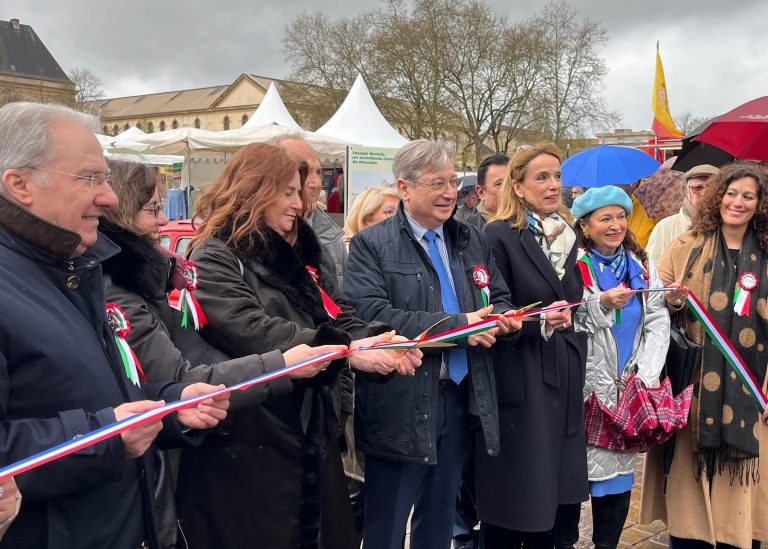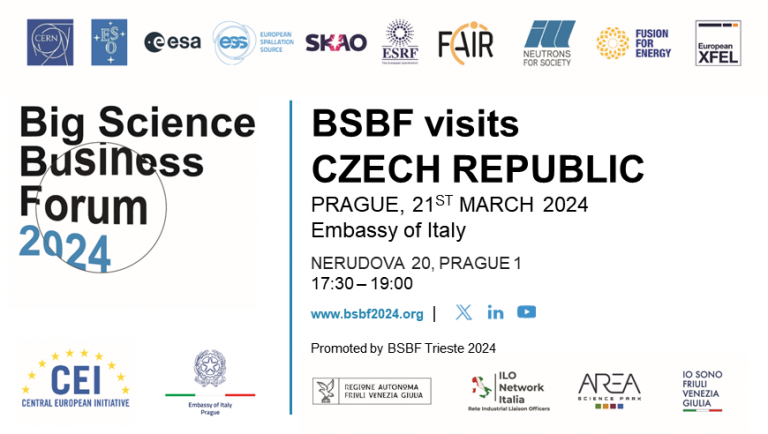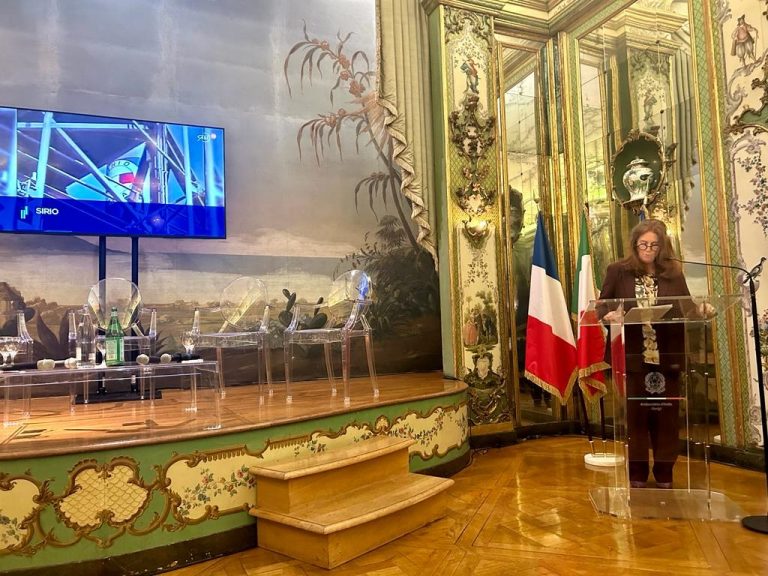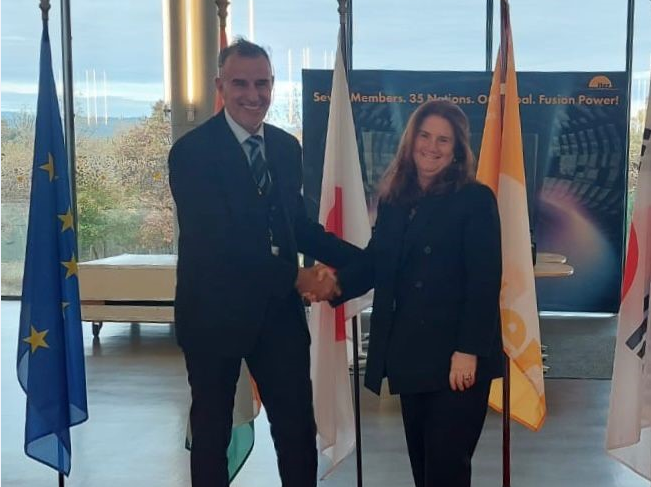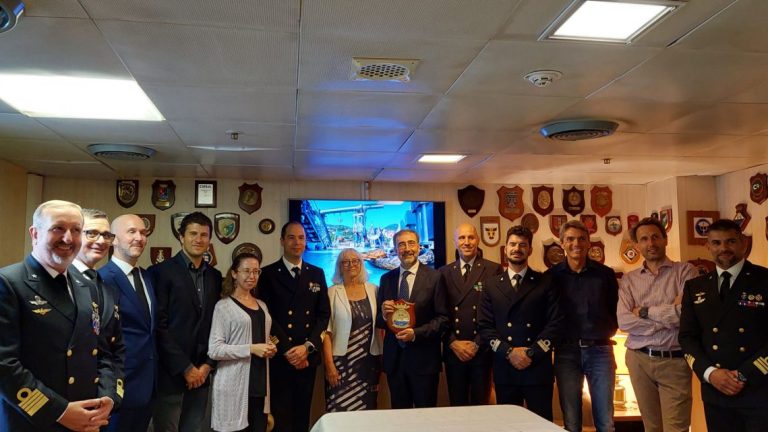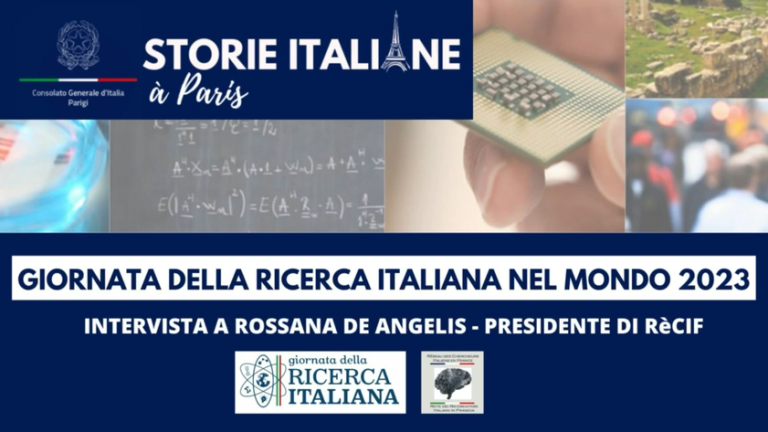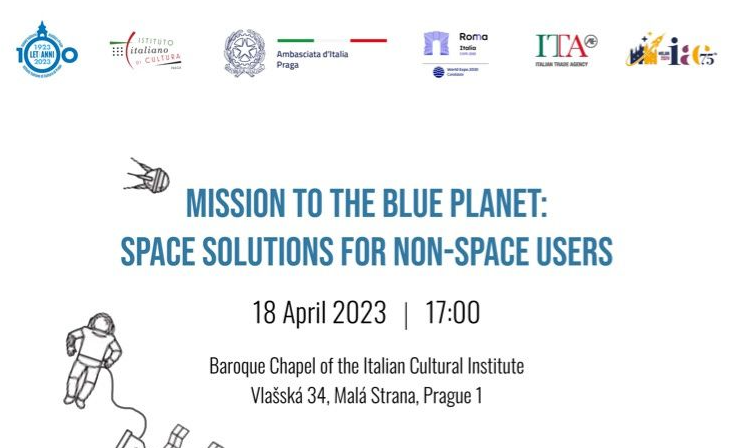Paolo Ferri, the father of the Rosetta mission and leader of flight operations for all ESA satellites – including the BepiColombo probe, an interplanetary mission that will reach Mercury in 2025 to discover its geophysical mysteries – was a guest of the European School in Frankfurt as part of the “Italian scientists at school” initiative promoted by the Italian Consulate General in Frankfurt. Why do we send telescopes out to space instead of choosing the easier option of using telescopes on Earth? What can we see with orbiting telescopes? How far can we arrive with interplanetary probes? And why are we happy to send machines instead of going ourselves? These are the questions that Paolo Ferri was asked by the students of the bilingual sections of the Freiherr vorn Stein secondary school and of the European School in Frankfurt. He explained how complex machines such as satellites and probes work and why we have launched hundreds of them into space, starting with the Sputnik in 1957, to observe the universe and explore the solar system.
With the help of some spectacular photos and using some historic missions as examples, he illustrated the scientific progress made over the past 60 years, revolutionising astronomy and opening new horizons as we learn more about the immense space surrounding us. Samantha Cristoforetti, who was greeted by the students like a real rock star, was also a guest of the same initiative a few days ago.
After a brief presentation of her personal and professional experience – while showing a series of intense images – Cristoforetti then answered a barrage of questions in simple, captivating scientific language. She told her audience about how it felt to be lifted off in a rocket full of fuel, making her the first Italian female astronaut in space, how you take a shower in the space station, how you sleep horizontally in a zero-gravity environment, why you have to exercise and the difficulties she experienced upon returning to Earth after having spent 200 days in space. AstroSamantha said that she had loved science fiction and adventure stories since she was a little girl, how she read Salgari and Verne, was a Star Trek fan, and had a dream: to become an astronaut. Having a dream means activating all your resources such as curiosity, studying, new experiences, teamwork, plenty of determination and a bit of luck, in order to make it come true. You also have to be able to deal with the difficulties and small disappointments that could make you give up. This was the strong message that Cristoforetti conveyed to the students in the Auditorium of the European School.

